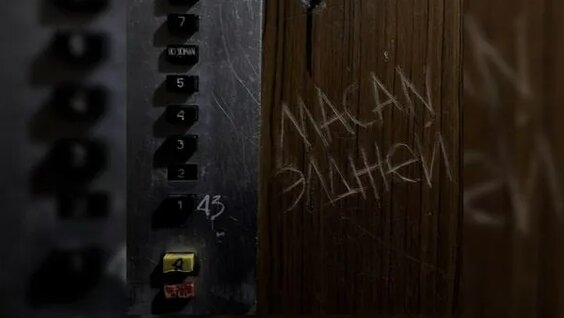
The recent album releases from Macan and Eldzhey spark a debate on the evolving sound of Russian hip-hop.
In the vibrant, often unpredictable, landscape of Russian hip-hop, a curious phenomenon recently unfolded: two titans of the genre, Macan and Eldzhey, chose the exact same moment to unleash their latest studio albums. This synchronicity wasn`t just a marketing ploy; it inadvertently set the stage for an intriguing, albeit unofficial, “rap battle” – a clash of styles, philosophies, and perhaps, the very soul of contemporary Russian urban music.
The outcome of this duel reveals more than just chart positions; it offers a compelling glimpse into the shifting priorities and tastes within the industry. What was once the hot trend might now be cooling off, and new currents are evidently taking hold. Our task, then, is to peel back the layers of these releases – Eldzhey`s “Complex Polnotsennosti” and Macan`s “Bratland” – to discern where true power now lies for these artists. Spoiler alert: it may not be where one traditionally expects to find artistic truth.
Eldzhey`s Comeback: A Familiar Tune in a New Era
Eldzhey, known to many as Sayonara Boy, emerged from a two-year hiatus with “Complex Polnotsennosti,” returning to the moniker that initially propelled him to fame. This album, a thirteen-track offering featuring collaborations with a notable roster including Onative, Anikv, Azar Strato, Eighteen, Feduk, and Biicla, signaled his clear intent to reclaim his throne as the “cool bad boy” of Russian rap.
After his monumental hit “Pink Wine” with Feduk, Eldzhey solidified his star status. Yet, his chosen path remained conspicuously defiant: a bold, almost alien, public image, a penchant for scandal, and tracks that often left more conventional listeners somewhat uncomfortable. This approach was common among young rappers a decade ago, but the contemporary scene demands a different cadence – a more measured tone, careful phrasing, an overall alignment with an era increasingly mindful of public sensibilities.
Eldzhey, however, appears to yield reluctantly to these new conventions. He continues to champion his signature rebellious line, seemingly unperturbed by societal shifts. Lines like, “My place needs cleaning, Bottles and condoms…” resonate with a deliberate, unvarnished authenticity, even if his private life might be a meticulously curated minimalist space. He remains steadfast in his belief that big-beat music, designed to ignite dancefloors with its raw, tearing rhythms, cars, fleeting romances, and club escapades, is his undeniable domain. Eldzhey has no plans to abdicate his self-proclaimed role as the “King of the Party,” and by all accounts, he still possesses ample stamina for the job.

Different aesthetics, different approaches – a reflection of diverging paths in modern Russian rap.
Macan`s “Bratland”: The Conservative Crooner`s Calculated Climb
Macan, on the other hand, makes no secret of his ambitious declaration: “my music is the flagship.” His previous album, “I AM,” made considerable waves last year, cementing his position as a formidable stadium-level artist. “Bratland” distinguishes itself by being entirely composed of collaborations, thus fostering a “brotherhood” of voices. This eclectic ensemble features heavyweight names like Basta, Guf, Navai, “Tri Dnya Dozhdya,” Big Baby Tape, alongside a selection of slightly less ubiquitous musicians.
Macan positions himself as what one might term a “reliable state artist.” In almost every track, he diligently references family and a core set of conservative values, stemming from his upbringing “under patriarchy.” He invokes a higher power and champions the perpetual quest to distinguish right from wrong. While this narrative can, at times, veer into the territory of routine or even outright dullness, his collaborators frequently inject much-needed dynamism.
A prime example is “Bordovaya 99,” featuring Guf. Macan delivers his verses with almost “pioneering zeal,” extolling virtues like unwavering faith and perseverance: “who grabbed the lifeboat until he saw the shore, I have faith, and it still warms me.” Guf, with his characteristic, self-taught swagger, introduces a welcome dose of pleasing chaos, reminiscing about wildly joyful, yet challenging, past days and expressing sincere delight that “I didn`t fade away, rap and I are side by side…” Such informal spontaneity is sparse on the album, but it is precisely these moments that provide genuine emotional resonance.
Macan, like many commercially driven rappers, aims for broad appeal, attempting to encompass as wide a demographic as possible. Thus, his “boyish rap” is often infused with a considerable measure of sentimentality, all neatly packaged in the contemporary pop-music aesthetic. This is a pragmatic, almost business-like, approach. It can, however, become rather intrusive, and where intrusiveness begins, a deficit of irony and wit often follows. It’s entirely plausible that Macan sees a tantalizing beacon in Basta, a figure renowned for his meticulously crafted musical marketing.
Yet, Vasily Mikhailovich (Basta) has always excelled at the nuanced art of self-mockery, of playfully challenging his surroundings, of wielding his distinctive Rostov accent to blend the raw lyricism of a suffering soul with a subtle, knowing wink. This, one might argue, is a far more intricate and demanding feat than simply orchestrating a series of star-studded collaborations.
The Verdict: A Shifting Soundscape and the Quest for Authenticity
▼▲▼
The anticipated “battle” between Eldzhey and Macan ultimately proved to be a rather one-sided affair. “Bratland” is currently dominating the charts, while “Complex Polnotsennosti” has garnered a considerably more modest reception. This outcome isn`t merely a reflection of musical quality; it`s a telling indicator of a profound shift in public sentiment and musical priorities.
Eldzhey has, it seems, reaped his harvest; the era of his particular brand of “hot stuff” has transitioned. Macan, meanwhile, is now the artist electrifying the youth, clearly intent on graduating from the “hot stuff” league to the esteemed “club of serious guys.” The ironic twist, for those of us observing this evolving dynamic, will be to witness who, amongst these burgeoning figures of gravitas, might eventually succumb to the sheer, unyielding weight of their own newfound seriousness.








